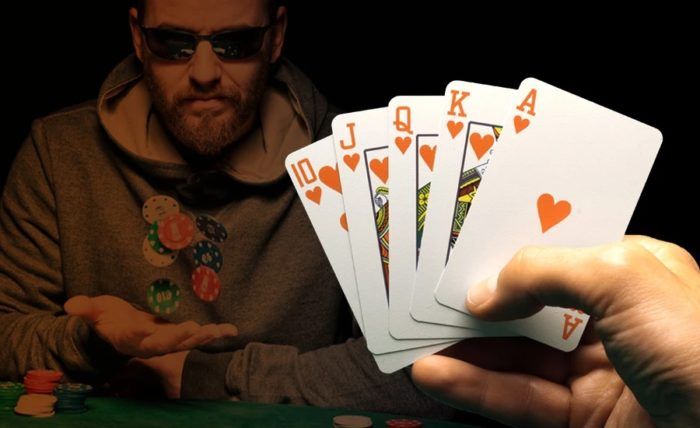Texas Holdem Poker: Myths Exposed
Texas Holdem poker is the casino game for the everyman! Whether you’re a seasoned veteran or a young buck just starting out, there’s always a place at the table. That being the case, there’s a lot of mystery that surrounds this iconic game, from Texas Holdem secrets to ‘fool-proof’ strategies that don’t actually make it past the flop.
In this in-depth guide, we’ll explore some of the misguided beliefs about Texas Holdem poker, exposing the myths that stop players from unlocking their full potential at the casino. By the time that we’re through, you’ll be ready to raise your game and take on the table! Bear in mind that these myths are mostly applied to low-stake games, as opposed to multi-million-pound tournaments. It goes without saying that to understand these myths it helps to have a basic knowledge of Texas Holdem poker.
Myth #1: Bluffing Is a Common Texas Holdem Strategy
It’s a common misconception among novice Texas Holdem poker players that everyone is bluffing with their hole cards (the two starting cards you’re dealt). In expectation of a win, they’ll call, only to lose to a strong hand on the river. In reality, it’s rare that players will bluff in small stake games, and if they do, it will not be a regular occurrence. If you’re playing against someone who hasn’t raised in a while but then does, the chances are that they haven’t bluffed and they have a good hand, so you should be cautious about calling them.
This isn’t to say bluffing, in general, is a bad Texas Holdem strategy. In fact, it’s an important asset to have in your arsenal for certain occasions. In a tournament setting, players will bluff more regularly.
Myth #2: TV Tournaments Can Teach You How to Play
One of the most important Texas Holdem tips you can learn is to avoid basing your game on what you’ve seen on television. While televised tournaments can help you understand the rules of the game, they are primarily made for entertainment purposes, meaning they aren’t the best source for determining a good Texas Holdem strategy.
Texas Holdem poker tournaments are played out over multiple days, which is cut down to a watchable length for a television audience. In essence, you’re watching the most exciting hour of any given day, meaning that all you’re seeing is the big calls, raises, and busts. Obviously, this is not representative of a slow, methodical poker game, so it’s probably not true that you can improve your Texas Holdem poker skills by watching TV tournaments.
Myth #3: If You Learn Poker Math, You’ll Be a Great Player
There is an underlying mathematical formula to Texas Holdem poker, however, learning it is not a prerequisite to being good at the game. While knowing a Texas Holdem strategy such as pot odds can improve your chances, this is rarely applicable in low-stake games. Therefore, the myth that you need an in-depth knowledge of maths in order to start playing poker is wrong, as it is very unlikely to affect your game!

Myth #4: You Can’t Be Successful Unless You Have a Good Poker Face
As with the art of bluffing, it’s a common misconception in Texas Holdem poker that you need a good poker face to be successful. Most people believe that you need to have a face of cold hard stone, a pair of jet-black sunglasses, and the patience of a saint to win the pot. In truth, especially in low-stake games, having a poker face is non-essential, as a very low minority of people will be able to make accurate reads off your expressions and movements.
Rather than studying your face, more advanced players will focus on betting patterns. So, if you’re looking for Texas Holdem tips, try to avoid predictable betting strategies.
Myth #5: Texas Holdem is Based on Luck
One of the biggest myths you’ll see about Texas Holdem poker is that it’s all based on luck. It isn’t. While the hole cards you draw are completely random, the way you utilise them determines your ability to play poker. Obviously, you can never know what cards your opponents will be dealt, but by having a good betting strategy and knowing when and when not to call, you can ride out bad hands and take the pot when your chance arrives.
Myth #6: Playing Without Money Is a Good Way to Practice
A prevalent theory among novice poker players is that practicing Texas Holdem poker in a non-competitive environment will improve your overall game. Unfortunately, this particular myth simply isn’t true. If you practice Texas Holdem free, it can be a great way to get to grips with the rules and understand the strategies for counting outs and pot odds. However, free games cannot help you to improve your betting strategy or bankroll management. Because you’re betting with ‘play money’, it has no real value and players will make calls and raises that would be unthinkable in a live competitive game. As such, it’s impossible to begin to accurately learn betting patterns that will help you win the pot!
Myth #7: Your Bankroll Is Irrelevant to Your Chances
The two biggest Texas Holdem secrets about your bankroll are that you barely need one and that betting small is a good way to play. Both of these are patently false. Your bankroll, the amount of money you have to play with, doesn’t need to be particularly impressive in order to play – especially in low-stake games. However, you do need to have a substantial bankroll if you want any shot at the pot. It’s incredibly unlikely that you could enter a game with a small bankroll, bet most of your chips in one round and survive long enough to see the game out!
Equally, a common misconception is that if you limit the size of your bets, you can maintain your stack while everyone else’s depletes. While bankroll management is an important part of any Texas Holdem strategy, you need to spend money to make money, and being too coy with your calls means you’ll win very little from the pot.
Now that we’ve exposed some of the most prevalent Texas Holdem poker myths, why not try one of our free games, get to grips with the basics, and move up to the real thing!








